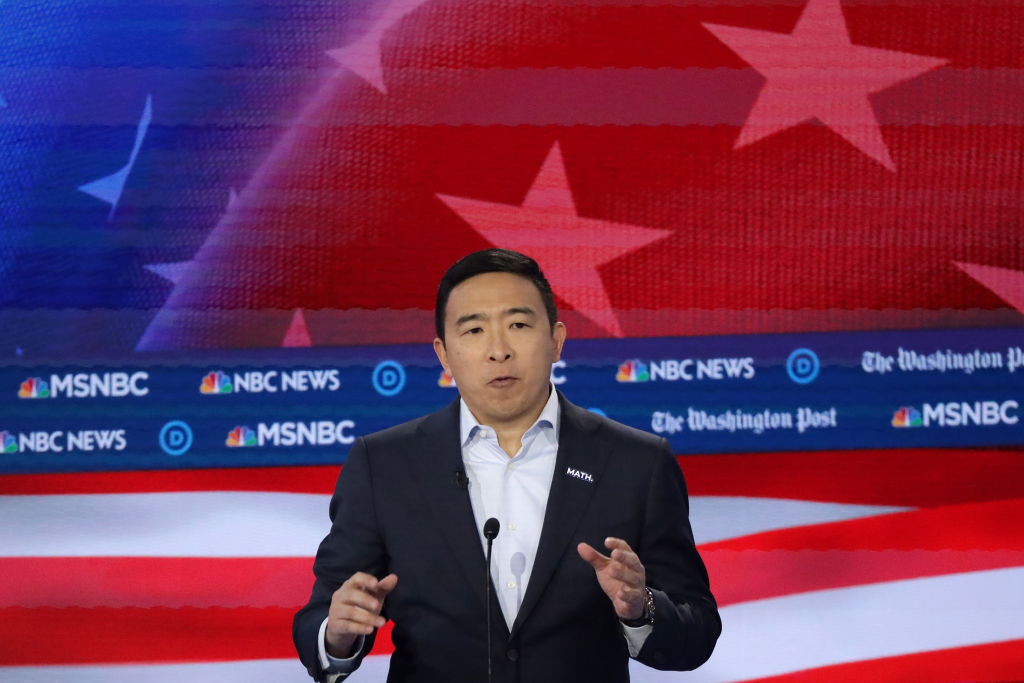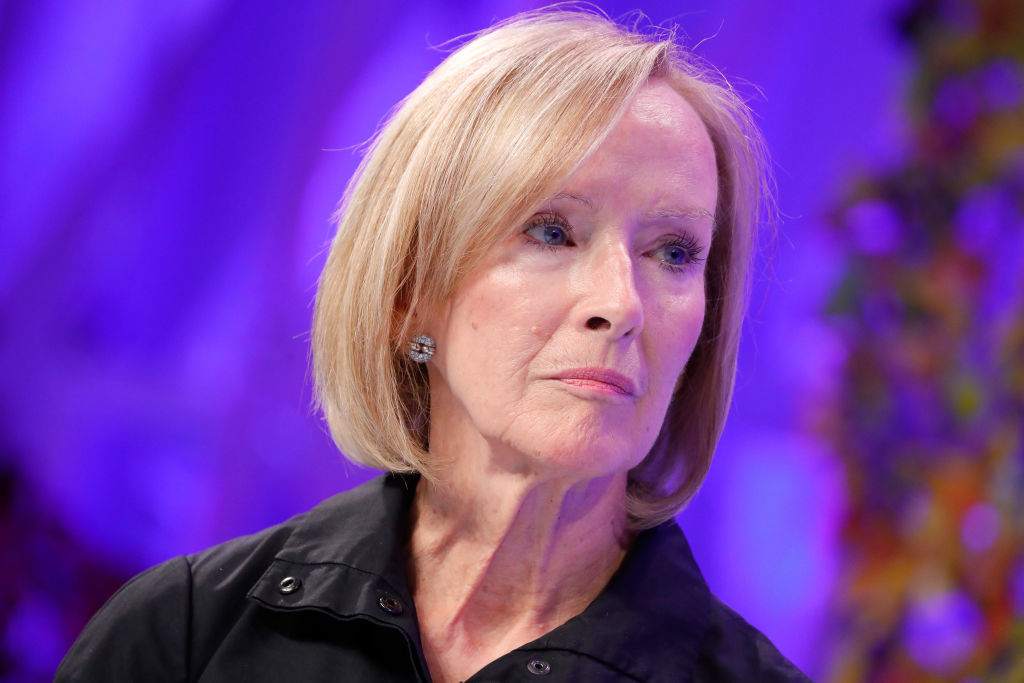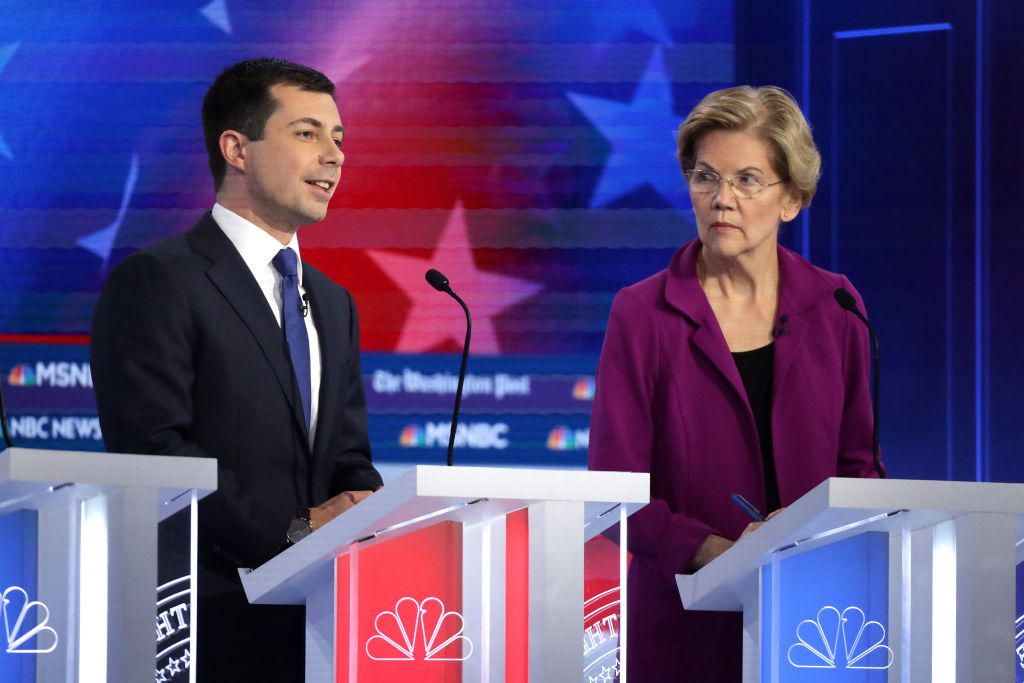The President may have been impeached but the week’s not over yet — the December Democratic debate will take place tonight in Los Angeles.
The last Democratic presidential primary debate of 2019 — and the last before the debates move to early voting states — will air live from Loyola Marymount University in Los Angeles on Thursday at 8 p.m on PBS. Follow along with TIME’s live coverage here.
Earlier in the week it had looked like the debate might have to be canceled. All seven of the candidates in the debate had said they would boycott the event because of a labor dispute between food services company Sodexo and the union representing service workers on the campus. Each pledged to “not cross the picket line.” But on Tuesday morning, the union — Unite Here Local 11 — announced they had reached an agreement and the debate could go ahead as scheduled.
PBS NewsHour and Politico will co-host the debate at the Loyola Marymount University in Los Angeles. Only seven candidates qualified this time: former Vice President Joe Biden, South Bend, Ind., Mayor Pete Buttigieg, Minnesota Sen. Amy Klobuchar, Vermont Sen. Bernie Sanders, billionaire executive Tom Steyer, Massachusetts Sen. Elizabeth Warren and entrepreneur Andrew Yang.
This will be the smallest debate yet — and also the whitest. Entrepreneur Andrew Yang will the only person of color on stage.
Candidates New Jersey Sen. Cory Booker, former United States Secretary of Housing and Urban Development Julián Castro and Hawaii Rep. Tulsi Gabbard — all people of color — each hit the required donor threshold but did not have the needed polling numbers. Booker and Gabbard both appeared in the previous debate.
They won’t be the only notable omissions from the stage. On Dec. 3, California Sen. Kamala Harris dropped out the presidential race. Once thought of as a potential frontrunner, Harris struggled with poor polling and fundraising numbers in the weeks prior.
Another candidate has only recently thrown his hat in the ring. Former New York City Mayor Michael Bloomberg announced he was officially running as a Democrat on Nov. 24. The 77-year-old billionaire also announced he would self-fund his campaign, meaning he won’t appear in any of the debates due to the fundraising requirements.
Meanwhile, the House of Representatives impeached President Donald Trump late Wednesday night. He was impeached on two articles: abuse of power and obstruction of Congress. The case now moves to the Senate, where a trial will determine whether to convict and remove him from office.
“There are a lot of people that aren’t on the debate stage, — Donald Trump being one of them, Bloomberg being another — whose presence will still be felt,” Margaret O’Mara a professor of American political history at the University of Washington, tells TIME.
Here’s everything you need to know about the December Democratic Debate.
Why the debate was almost cancelled
On Friday, all seven Democrats who qualified announced they would boycott the debate due to a labor dispute at Loyola Marymount University between Unite Here Local 11, a food workers’ union, and Sodexo, the company contracted to operate dining halls at the Loyola Marymount campus.
Warren was the first announce she would “not cross the union’s picket line,” with every other candidate following her lead in quick succession.
The Los Angeles Times reports Warren’s move surprised some of the union workers. “It was astonishing to me,” Angela Fisher, a Sodexo prep cook at the university, told the Los Angeles Times. “I feel like we’re little people and they’re big people.”
The dispute affected roughly 150 workers but managed to grab the attention of the entire Democratic party. Axios reports that DNC chair Tom Perez — who served as Secretary of Labor under President Obama — spent over 20 hours on the phone over the weekend trying to help resolve the labor dispute.
On Tuesday morning, UNITE HERE Local 11 announced they had reached an agreement and the debate could go ahead as scheduled.
When is the debate?
The debate is scheduled to air live at from 8 p.m. to 11 p.m. ET on PBS. It’s also scheduled to stream on PBS NewsHour digital platforms and POLITICO’s social and digital platforms.
This is the last debate of 2019. The DNC announced on Dec. 12 that it would hold four primary debated in the first two months of 2020, one in each of the four early voting states: Iowa, New Hampshire, Nevada and South Carolina. Thursday’s debate will be the last until that string of debates begin.
Which candidates have qualified for the December Democratic Debate?
The DNC raised the debate qualifications once again, winnowing the field down to seven, compared to the 10 who appeared on stage in November and the record-breaking 12 in October.
Candidates had until 11:59 p.m. on Dec. 12 to receive at least 4% in four DNC-approved poll or at least 6% in two early-state polls (Iowa, New Hampshire, South Carolina and/or Nevada). Candidates also had to receive donations from at least 200,000 unique donors with a minimum of 800 unique donors in at least 20 states.
Former Vice President Joe Biden, 77
Biden represented Delaware in the Senate from 1973 to 2009 and then served two terms as President Barack Obama’s Vice President from 2009 to 2017. He ran for the Democratic presidential nomination in 2008 and 1988.
South Bend, Ind., Mayor Pete Buttigieg, 37
Buttigieg has been the mayor of South Bend, Ind. since 2012, and would be the first openly gay presidential nominee for a major political party if he won the primary. He also was an intelligence officer in the U.S. Navy Reserve between 2009 and 2017.
Minnesota Sen. Amy Klobuchar, 59
Klobuchar served as the county attorney for Minnesota’s most populous county, Hennepin County, from 1999 to 2007, and became the first woman to be elected senator from Minnesota in 2006.
Vermont Sen. Bernie Sanders, 78
Sanders has represented Vermont in the Senate since 2007 and previously served as Vermont’s sole congressional representative from 1991 to 2007. The self-described democratic socialist ran for the 2016 Democratic nomination and lost to former Secretary of State Hillary Clinton.
Billionaire executive Tom Steyer, 62
The founder of the hedge fund Farallon Capital, Steyer as launched the political groups NextGen America and Need to Impeach, and has poured millions of his own money into campaigns calling for President Trump’s impeachment.
Massachusetts Sen. Elizabeth Warren, 70
In 2013, Warren became the first woman senator from Massachusetts. She previously taught law, specializing in bankruptcy. She proposed the original idea for the Consumer Financial Protection Bureau in 2007 while still teaching at Harvard Law School.
Entrepreneur Andrew Yang, 44
Yang founded Venture for America, a nonprofit and fellowship focused on creating jobs in cities across America. He is also known for advocating about the threat of automation.
Yang — who has no political experience — has made it much further than other candidates that pundits had initially told voters to watch out for. Harris, former Texas Rep. Beto O’Rourke and New York Sen. Kristin Gillibrand have all since dropped out of the race, but Yang is still qualifying for debates.
“I think [he’s] certainly appealing to a certain part of the electorate that wants someone new and fresh, want someone younger, doesn’t necessarily want a politician, wants someone who’s coming from a different world, and he seems to be checking those boxes,” says O’Mara.

Who didn’t qualify?
New Jersey Sen. Cory Booker, Hawaii Rep. Tulsi Gabbard and former HUD Secretary Julían Castro each met the donor threshold but fell short of the polling requirements. FiveThirtyEight reports that fewer polls have been released in the past few weeks compared before previous debates, which could have hurt their chances.
Five other Democratic candidates met none of the requirements: Colorado Sen. Michael Bennet; Mayor Bloomberg; Former Maryland Rep. John Delaney; former Massachusetts Governor Deval Patrick, and self-help author Marianne Williamson. Bloomberg has announced he won’t accept any donations, so he won’t be able to qualify for any of the debates.
California Sen. Kamala Harris dropped out of the race on Dec. 3, surprising many. The former California attorney general was once thought of as a leading candidate and had generated a huge amount of buzz when she first entered the race earlier this year. In the weeks before dropping out, she had struggled with poor polling and fundraising numbers.
Miramar, Fla., Mayor Wayne Messam, Montana Gov. Steve Bullock and Former Pennsylvania Rep. Joe Sestak have all also dropped out since the November debate.
Ten other candidates have dropped out of the race: New York Sen. Kirsten Gillibrand, Former Alaska Sen. Mike Gravel, former West Virginia state senator Richard Ojeda, Former Colorado Gov. John Hickenlooper, Washington Gov. Jay Inslee, Massachusetts Rep. Seth Moulton, California Rep. Eric Swalwell, Ohio Rep. Tim Ryan, New York City Mayor Bill de Blasio, and former Texas Rep. Beto O’Rourke.
Who’s moderating?
PBS NewsHour and Politico have announced four co-moderators: NewsHour anchor and managing editor Judy Woodruff, Politico chief political correspondent Tim Alberta, PBS NewsHour White House correspondent Yamiche Alcindor and PBS NewsHour senior national correspondent Amna Nawaz.
Woodruff has covered politics for more than four decades, having moderated multiple presidential primary debates and as well as the famous 1988 vice-presidential debate where Senator Lloyd Bentsen said, “Jack Kennedy was a friend of mine. Senator, you are no Jack Kennedy.”
Before serving as Politico’s chief political correspondent, Alberta previously wrote for the conservative magazine National Review and covered the Republican Party. According to NBC, the DNCe resisted the choice of Alberta, arguing he wouldn’t be suited to moderate a Democratic primary debate.

What are the big issues that will likely come up?
Due to the labor dispute, the importance of organized labor in the United States will likely be discussed. Former Secretary of State Hillary Clinton won more union members than President Trump did in 2016, but Trump earned the best margin for a Republican candidate since 1984 according to The Washington Post. The 2020 Democratic candidates will try to chip away at that support.
The House of Representatives impeached President Trump late Wednesday night, and the historic vote will almost definitely come up, despite the candidates not having many differences of opinion on the issue.
“You still have a fair number of senators on the stage who could very easily be in the middle of a trial of the President when they would otherwise be campaigning in Iowa and New Hampshire in January,” says Seth Masket, a professor of political science at the University of Denver. “So just some discussion about what they plan to do about that, or what people need to know going into that might be useful.”
The stages’ lack of diversity could also be a topic of conversation.
“One of the most notable things will be the absence of Kamala Harris,” Masket continues. “And her particular sets of issues that she’s brought up, including a number of issues related to race and poverty and talking about struggles of African American women… And that could be a very noticeable absence.” Booker, Castro, and Gabbard’s absence might also draw attention to the dwindling amount of prominent voices of color on stage.
American University’s Barker tells TIME that the usual Democratic issues — health-care reform, taxes, immigration reform and gun control — will all likely come up again. Medicare For All has been an area where Buttigieg has attacked Warren, and he might attempt to hit her on the topic again. Trade could also come up more than usual due to the House’s debate over the USMCA, Trump’s replacement for NAFTA.
Jaime Dominguez, a professor of political science at Northwestern, tells TIME that the House’s recent passage of a bill to grant a path to citizenship to immigrant farmworkers might put more pressure on candidates to advocate for comprehensive immigration reform.
While he won’t be on stage, Bloomberg may also be mentioned. “I could imagine his name coming up as part of a discussion of the influence of the mega-wealthy on politics. Warren has been trying to use Bloomberg as a foil,” Kyle Kondik, the managing editor of political forecaster Sabato’s Crystal Ball at the University of Virginia Center for Politics, writes in an email. Steyer, a billionaire who will be on stage, might also take some heat for the same reason.
Which candidates might clash onstage?

“Buttigieg and Warren have come into clearer conflict, and that may be a larger feature of this debate,” writes Kondik. The pair have recently fought over transparency, each pushing the other to reveal more details of their previous corporate work.
“Also, at this point, only seven candidates will be on the stage,” Kondik continues. “That gives all of the candidates more time to speak and could allow for more confrontations among the candidates.”
“One of the other more recent shifts is that we’re seeing the candidates starting to go more negative on each other,” adds Masket. “Interestingly, there’s been not so much fire directed at Biden, which is surprising considering he continues to lead the pack, but there’s a pretty substantial fight for second place.”
Hans Noel, an associate professor at Georgetown University’s Department of Government, says he thinks Buttigieg sees himself as an alternative to Biden, and might try to differentiate himself from Biden in the debate by continuing to go after Warren and Sanders. Buttigeg, in turn, might face more attack since he has risen in the polls.”
“More attacks will likely be directed at Pete than previously,” Barker adds. “I [also] expect Klobuchar to be on the offensive, since this is really her last shot.”
“There is a lot of evidence that most voters don’t see the race in terms of an establishment vs. a progressive wing,” Noel writes in an email. “But the candidates do seem to see it that way, and that may shape their strategy.”
Where do the candidates stand in the polls?
Over the past few months Joe Biden has continued to lead in the polls, while Warren, Buttigieg and Sanders have swapped around second and third place.
“Warren has declined a bit, Buttigieg has increased. Most of the shifts are minor. I’d say we still have a four or five person race,” writes Noel in an email to TIME.
Here are the polling averages of the candidates in the debate, according to RealClearPolitics’ polling average on Dec. 19:
Will Thursday’s debate even affect the polls? Per Kondik, “It’s hard to say… There has been some movement in the race over the past several months but it’s hard to tie these movements to the actual debates. The one striking bit of movement was Harris’s growth after the first debate. But she later declined and is not even a candidate anymore.”
But for some lower-polling, candidates these debates could one of the last opportunities to pitch themselves to to the voters before the primary season heats up in 2020. “They need these moments to make an impression and try to shift the trajectory of their campaigns, kind of bring up, boost up their support,” adds O’Mara. “And we always have the vice presidential primary that’s going on simultaneously.”
But she continues, “When voting actually starts, that’s when the action happens. And the voters may surprise us. Who knows how this is going to play out.”
More Must-Reads from TIME
- Breaking Down the 2024 Election Calendar
- How Nayib Bukele’s ‘Iron Fist’ Has Transformed El Salvador
- What if Ultra-Processed Foods Aren’t as Bad as You Think?
- How Ukraine Beat Russia in the Battle of the Black Sea
- Long COVID Looks Different in Kids
- How Project 2025 Would Jeopardize Americans’ Health
- What a $129 Frying Pan Says About America’s Eating Habits
- The 32 Most Anticipated Books of Fall 2024
Write to Madeleine Carlisle at madeleine.carlisle@time.com
